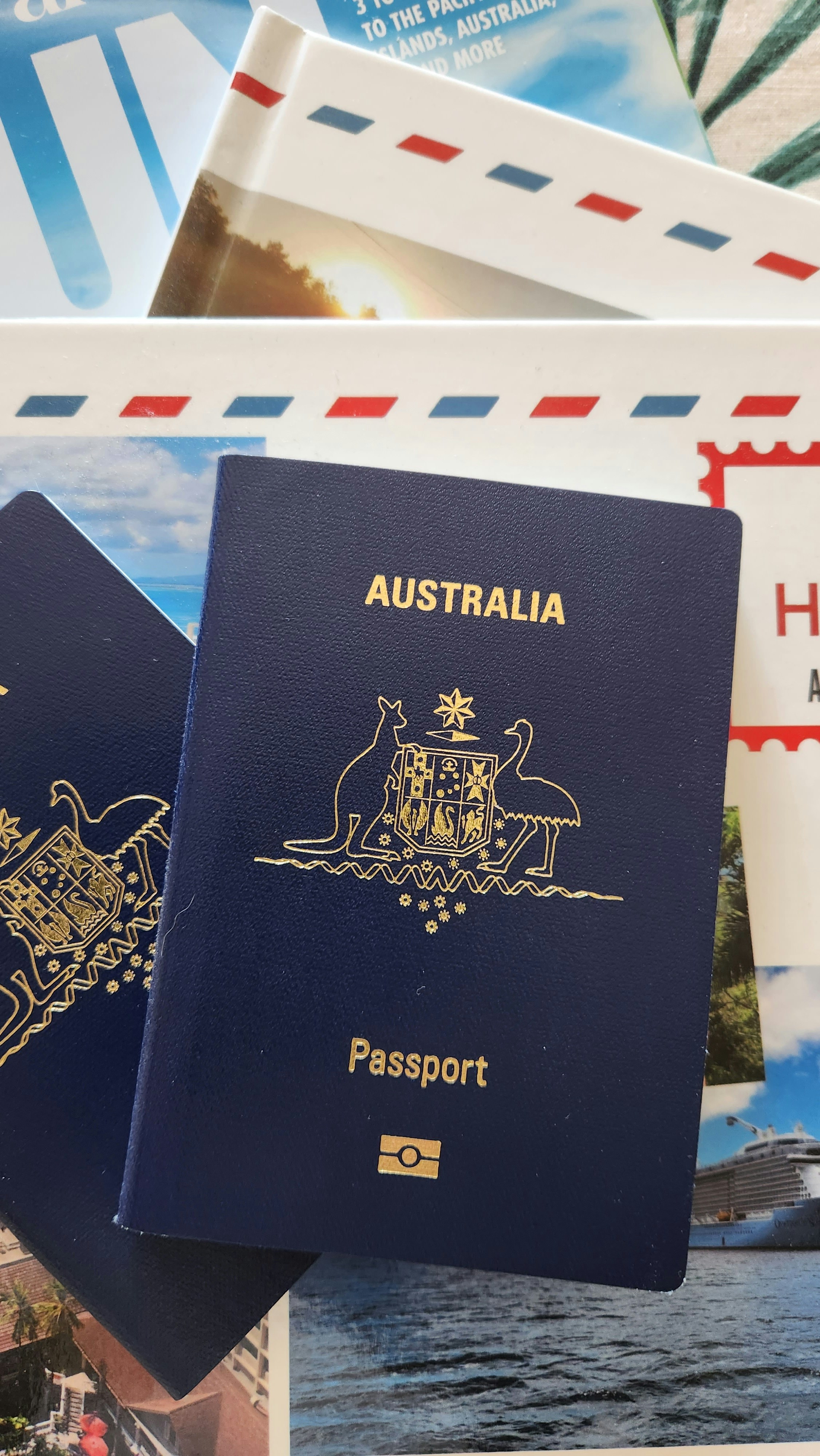Discover the cultural customs you should be aware of before traveling to a new country. Learn greetings, communication, social etiquette, and more!
Planning a trip to a new country can be an exciting adventure, filled with the anticipation of discovering new landscapes, tasting unfamiliar cuisines, and immersing ourselves in a different culture. However, as we embark on this journey, it is important to be mindful of the cultural customs that may differ from our own. By understanding and respecting these customs, we can foster positive experiences and meaningful connections with the locals, enhancing our travel experience and expanding our worldview. In this article, we will explore the importance of being culturally aware before traveling to a new country, offering practical tips and insights that will surely make our journey even more enriching.
This image is property of images.unsplash.com.
Greetings and Communication
Greetings
Greetings play an important role in every culture, as they serve as a way to show respect and create a positive interaction. In our country, greetings are often warm and friendly. A common greeting is a smile and a handshake, accompanied by a simple “hello” or “good morning/afternoon/evening.” It is important to maintain eye contact while greeting someone, as it demonstrates interest and respect.
Verbal Communication
Verbal communication is an essential aspect of daily life, and understanding the language of the country you are visiting can greatly enhance your experience. In our culture, English is widely spoken, but it can be helpful to learn a few basic words and phrases in the local language as well. This shows respect and effort to connect with the locals. Ensuring clear pronunciation and speaking at a moderate pace can also aid in effective communication.
Non-verbal Communication
Non-verbal communication varies across cultures and can have different meanings. In our country, a nod of the head may indicate agreement or approval, while shaking the head from side to side often conveys disagreement or disapproval. Hand gestures should be used sparingly and with caution, as they can be easily misinterpreted. Overall, being attentive and observant to cultural cues during non-verbal communication can help avoid misunderstandings.
Social Etiquette
Meeting and Greeting
When meeting someone for the first time, a firm handshake and maintaining eye contact are customary. It is polite to address someone by their title and surname, unless instructed otherwise. After the initial greeting, it is common to exchange pleasantries and inquire about each other’s well-being. Showing genuine interest in the other person and actively listening are important aspects of social etiquette.
Dress Code
Appropriate dress code can vary depending on the location and occasion. It is advisable to dress modestly and conservatively, especially when visiting religious sites or attending formal events. Avoid wearing revealing or offensive clothing, as it may be deemed disrespectful in our culture. When in doubt, it is always better to err on the side of caution and choose attire that blends in with the local customs.
Table Manners
Table manners are an integral part of social etiquette and can greatly influence the dining experience. In our culture, it is customary to wait for the host to begin eating before starting your own meal. Using utensils rather than eating with your hands is the norm, unless you are specifically dining in an establishment where eating with hands is expected. Chewing with your mouth closed, refraining from speaking with food in your mouth, and using napkins appropriately are also considered good table manners.
This image is property of images.unsplash.com.
Religious Customs
Places of Worship
Our country is blessed with diverse religious traditions, and visiting places of worship can provide valuable insights into our culture. When visiting religious sites, it is important to dress modestly and respectfully. Some places of worship may require the removal of shoes, head coverings, or specific attire, so it is essential to be aware of and follow these guidelines. Maintaining a quiet and reverent demeanor is also expected to show respect for the religious customs.
Religious Attire and Behavior
Different religions may have specific expectations regarding attire and behavior. For example, in some places of worship, women may be required to cover their heads or wear modest clothing. It is crucial to research and understand the customs and practices associated with different religions to ensure respectful behavior. If uncertain, observing and following the lead of others in the worship space can help navigate these situations with sensitivity.
Religious Holidays and Traditions
Religious holidays are significant occasions in our culture, and they often involve unique traditions and rituals. Being aware of these holidays can provide opportunities for cultural immersion and understanding. During these times, it is common for families and communities to come together to celebrate. Showing respect and sensitivity towards these traditions can be achieved by refraining from disruptive behavior, understanding the significance of the occasion, and being open to learning about the customs and practices involved.
Cuisine and Dining
Food Customs
Our country is renowned for its rich and diverse cuisine, and exploring local food customs can be a delightful experience. Various regions may have their own unique dishes and culinary practices. It is important to be open to trying new foods and respecting local customs. Inquire about dietary preferences or restrictions when accepting invitations to meals, as some individuals may have specific dietary needs or cultural beliefs.
Table Manners
Table manners are an essential aspect of dining etiquette. When dining in our country, it is customary to wait for the host to signal the start of the meal or invite guests to begin. In formal settings, various utensils may be provided, so it is important to observe and follow the lead of others in their use. It is considered polite to chew with your mouth closed, avoid talking with a full mouth, and use appropriate utensils to interact with food. Refusing an offered dish could be seen as impolite; therefore, it is generally recommended to accept at least a small portion of the food.
Tipping Etiquette
Tipping customs can vary greatly from country to country. In our country, tipping is typically practiced in restaurants and for certain services. It is customary to tip around 10-15% of the total bill in restaurants, although some establishments may include a service charge. It is always good practice to check if service charges are already included before adding an additional tip. In other service industries, such as taxis or hotels, tipping is not always expected but can be appreciated for exceptional service. Ultimately, tipping should be seen as a gesture of appreciation for good service and not an obligation.
This image is property of images.unsplash.com.
Gift Giving
Appropriate Gifts
Gift giving is a common practice in our culture and can help foster relationships and show appreciation. When selecting a gift, it is important to consider the recipient’s preferences and cultural norms. Gifts should be thoughtful and appropriate for the occasion. Avoid giving items that could be seen as offensive or culturally inappropriate. For instance, certain colors or symbols may hold negative connotations in different cultures, so it is essential to research and understand these nuances before selecting a gift.
Gift-Giving Occasions
There are several occasions in our culture where gift giving is customary. Birthdays, weddings, and religious festivals are examples of such occasions. It is customary to present gifts to the host when invited to someone’s home for a meal or special event. These gifts can range from flowers or small tokens of appreciation to more significant offerings, depending on the relationship and the occasion. Remember that gift giving is not about the value of the gift, but rather the thought and effort put into selecting something meaningful.
Gift-Giving Etiquette
When presenting a gift, it is polite to offer it with both hands as a sign of respect. Gifts are often wrapped and presented at the beginning or end of an event, rather than during the event itself. It is customary for the recipient to initially decline the gift, to show modesty and respect for the giver. However, it is expected that the giver persists in offering the gift. Once the gift is accepted, expressing gratitude and appreciation is important.
Personal Space and Touch
Personal Space
Personal space refers to the physical distance individuals prefer to maintain between themselves and others during interactions. In our culture, personal space can vary depending on the relationship, the context, and the location. Generally, conversations between acquaintances are conducted at arm’s length, while closer friends or family members may feel comfortable standing or sitting closer to one another. It is important to be respectful of personal space and body language cues, as invading someone’s personal space can be seen as intrusive or disrespectful.
Physical Contact
Physical contact varies across cultures and can depend on factors such as familiarity and the nature of the relationship. In our culture, handshakes and brief hugs are common forms of greetings between friends or acquaintances. However, it is always important to observe and follow the lead of locals to navigate physical contact appropriately. If uncertain, it is best to err on the side of caution and wait for the other person to initiate physical contact in a given situation.
Eye Contact
Eye contact is a powerful form of non-verbal communication and can convey interest, respect, and attentiveness. In our culture, eye contact is generally regarded as a positive gesture during conversations. It shows engagement and indicates that you are actively listening. However, it is crucial to be mindful of cultural variations. Some cultures may perceive prolonged eye contact as challenging or disrespectful, while others may view avoiding eye contact as a sign of disinterest or dishonesty. Paying attention to the local norms and adapting your behavior accordingly can enhance cross-cultural communication.

Cultural Dress Code
Modesty
Modesty plays an important role in our culture, particularly when it comes to dress. It is important to respect local customs and adhere to modesty guidelines to avoid unintentionally causing offense. Dressing modestly generally means avoiding clothing that is revealing, tight-fitting, or overly provocative. This is especially important when visiting religious sites or conservative areas. By dressing modestly, you demonstrate respect for the local culture and help create a positive impression.
Head Coverings
Head coverings are often associated with religious or cultural traditions. In our culture, it is not mandatory for everyone to cover their heads, but certain religious sites or events may require it. Women should be prepared to wear a headscarf or similar covering when visiting places of worship or participating in traditional ceremonies. It is advisable to carry a scarf or shawl to cover the head if necessary.
Traditional Attire
Each country has its own unique traditional attire, which often holds cultural and historical significance. While it may not be necessary for visitors to wear traditional clothing, it can be appreciated as a sign of respect and a way to engage with the local culture. If attending special events or ceremonies, it is worth considering incorporating elements of traditional attire. However, it is important to ensure that the attire is worn respectfully and in accordance with cultural norms.
Time Management
Punctuality
Punctuality is valued in our culture, and it is generally expected to arrive on time for meetings, appointments, and social gatherings. Being late can be seen as disrespectful and may inconvenience others. It is important to plan your schedule accordingly and allow for any potential delays or transportation issues. If you anticipate being late, it is considerate to inform the other party in advance.
Scheduling and Flexibility
While punctuality is important, it is also essential to be aware of the local concept of time and adapt to any cultural variations. In some cultures, schedules may be more flexible, and events may not always start or end exactly on time. It is advisable to be patient and understanding, especially when scheduling meetings or attending social events. Flexibility and adaptability can help navigate any potential differences in time perception and ensure smoother interactions.
Time Perception
Time perception can vary greatly across cultures. In our culture, being “on time” typically means arriving a few minutes early or at the scheduled time. However, it is important to recognize that not all cultures view time in the same way. Some cultures may prioritize relationships and allow for more relaxed schedules, while others may have a more structured approach to time management. Being aware of these differences and adjusting your expectations and behaviors accordingly can contribute to successful cross-cultural interactions.

Celebrations and Festivals
Important Holidays
Our culture celebrates a variety of important holidays throughout the year. These holidays often hold deep cultural and historical significance and reflect the values and traditions of our society. Some major holidays include New Year’s Day, Independence Day, religious festivals, and cultural celebrations. These holidays are usually marked by various festivities, such as parades, fireworks, traditional performances, and family gatherings.
Festival Traditions
Festival traditions can vary significantly from region to region, but they often involve vibrant displays of music, dance, and traditional customs. Participating in local festivals can be a fantastic way to immerse yourself in our culture and learn more about our traditions. It is important to be respectful of any cultural practices or rituals associated with the festivals and to follow any guidelines or instructions provided by event organizers or local authorities.
Participation Etiquette
When participating in festivals or celebrations, it is important to be respectful of local customs and traditions. Familiarize yourself with any specific etiquette guidelines related to the festival and follow them accordingly. Certain festivals may have dress codes or specific behaviors associated with them, so it is essential to be aware and observe these customs. Being open-minded, embracing the festive spirit, and celebrating alongside the locals can create unforgettable cultural experiences.
Gender Roles and Behavior
Gender Equality
Gender equality is an important aspect of our culture. Men and women are generally considered equal in terms of rights, opportunities, and social roles. However, it is essential to recognize that gender roles and expectations can still exist to some extent. It is advisable to approach conversations and interactions with respect and without making assumptions based on gender. Cultivating an inclusive and egalitarian mindset helps foster positive cross-cultural exchanges.
Appropriate Behavior
When interacting with individuals of different genders, it is important to be mindful of cultural norms and expectations. Being polite, respectful, and considerate towards everyone is crucial. Avoiding topics that may be sensitive or offensive can help create a comfortable and inclusive environment. Understanding and appreciating the diversity of gender roles and behaviors can lead to meaningful cross-cultural connections and a greater understanding of our culture.
Dress Code
Dress code expectations and standards can vary depending on the context and occasion. In our culture, clothing choices are generally a matter of personal preference and expression. However, it is important to dress appropriately for different situations. When visiting religious sites or formal events, it is advisable to choose attire that adheres to modesty guidelines and cultural expectations. Respecting dress codes can help avoid unintentional offense and demonstrate sensitivity towards cultural norms.
By familiarizing yourself with these cultural customs and etiquette guidelines, you can enhance your travel experience and foster positive connections with the local community. Remember, showing respect, being open-minded, and embracing cultural diversity will greatly contribute to creating memorable and enriching experiences while traveling to our country.


















